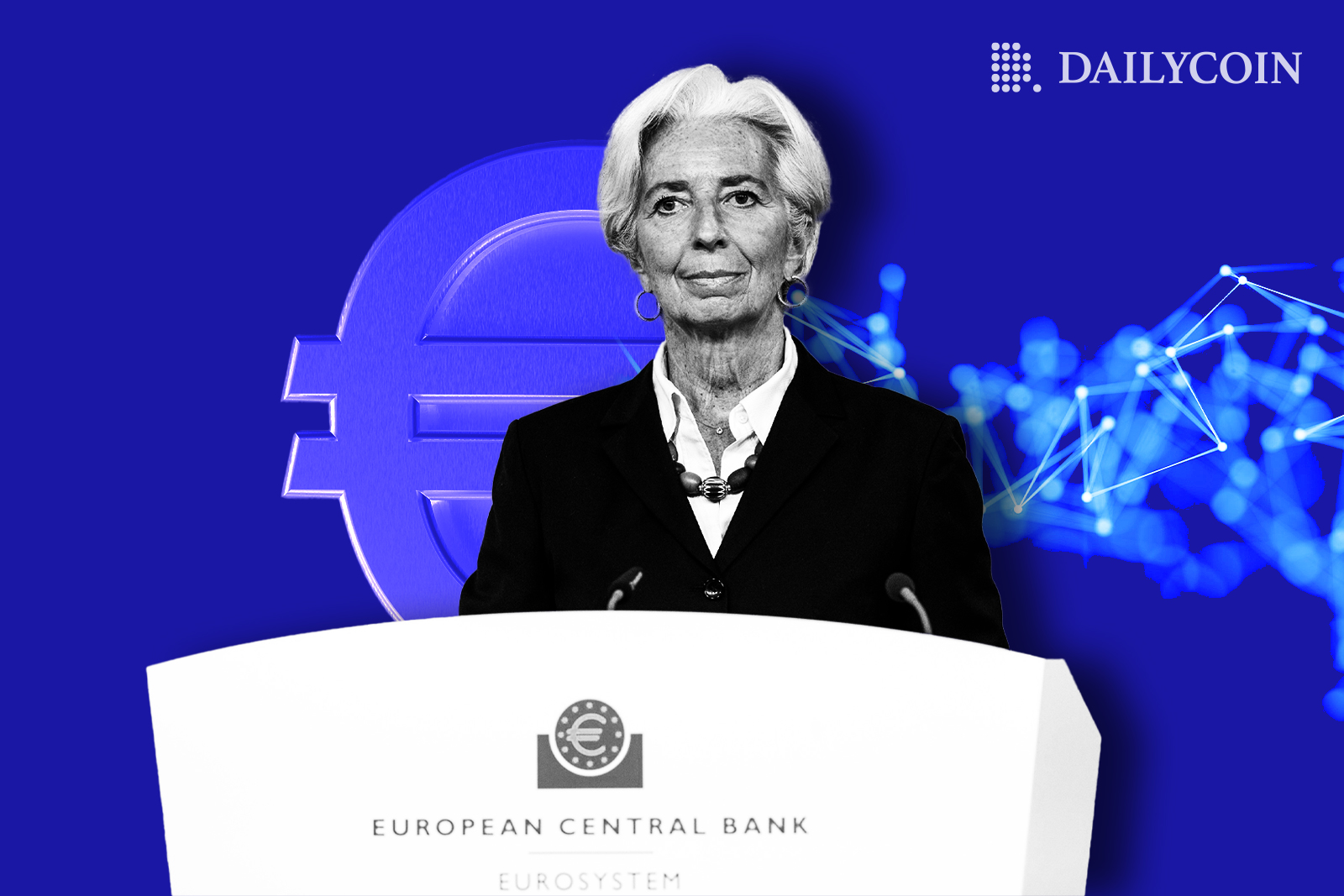
- ECB says Eurosystem would be in charge of issuing digital euros.
- Private intermediaries would distribute these euros to the users, and manage transactions in their accounts.
- Banks would also perform KYC and anti-money laundering checks.
Europe is gearing up to release its own digital euro. However, the CBDC is unlikely to get much attention in the crypto space. As it turns out, there is no place for self-custody in ECB’s vision.
On Wednesday, the European Central Bank (ECB) released its second progress report on its investigation of the digital euro. The proposed digital currency would be the central bank digital currency (CBDC) of the eurozone.
The ECB explained its vision of how the digital euro would work. The “Eurosystem,” which comprises the ECB and the central banks of the member states, would be in charge of the issuance and the settlement of the digital euro.
Sponsored
Europe’s monetary authority says its role in processing user data would be minimal. “The Eurosystem would not be able to infer how much digital euro any individual end user holds nor to infer end users’ payment patterns,” the ECB says.
On the other hand, distributing these digital euros to users would be in the hands of private entities. Intermediaries such as “credit institutions and payment service providers,” would handle all user-facing transactions.
Sponsored
As such, they would have a similar role to banks in the current system. Intermediaries would be in charge of “opening digital euro accounts or wallets and associated payment operations,” the report says.
They would be in charge of “opening digital euro accounts or wallets and associated payment operations.” In addition, intermediaries would be responsible for know-your-customer (KYC) and anti-money laundering checks.
Digital Euro Launch by 2023?
ECB, together with the central banks of the countries in the eurozone, launched an investigation into the digital euro back in October 2021.
The investigation is expected to be concluded by the end of 2022. If all goes according to plan, Eurosystem could reach a decision as soon as autumn, 2023. At that point, the ECB could start a full-scale launch of the digital currency.
On the Flipside
- Central bank digital currencies raise concerns over privacy and data protection. Moreover, critics say that the assets give too much control to the central banks over the economy.
- The digital euro is unlikely to interest crypto investors and traders, who favor self-custody.
Why You Should Care
Eurozone is one of the largest economies in the world, with more than 400 million people. A digital euro could set trends on how other countries tackle the issue of CBDCs in the future.
